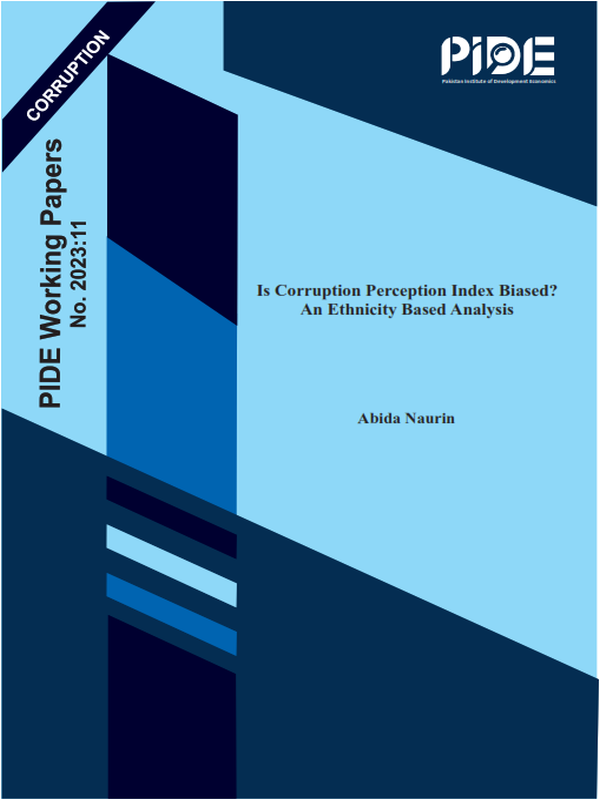Is Corruption Perception Index Biased? An Ethnicity Based Analysis
ABSTRACT
Corruption is a widespread problem that affects many countries across the world. Ethnicity and economic growth are two important factors that can influence corruption levels in a country. Corruption has a negative impact on economic growth, investment, and social development in several ways. This research aims to investigate the relationship between economic growth, ethnicity, and panel-country corruption levels. Specifically, it seeks to answer the question: do economic growth and ethnicity explain the differences in panel-country corruption levels? Most recently the IMF in its conditionality has used the Corruption Perception Index (CPI) to put conditions that are non-economic on Pakistan. This is why we will attempt to understand the biases in the CPI and its meaning.? We are particularly curious about whether race matters. Is there a racial bias in the CPI? In addition, is that rich countries always show up as clean and poor not? This research is based on panel data using 169 countries (available data for the variables) considered by Transparency International (TI) for the Corruption Perception Index (CPI) Score. These 169 countries are the only ones with sufficient data on the corruption perception index (CPI) score and GDP per capita (constant 2015 US dollars) over the period 2012–2022. This analysis uses a binary dummy for white-race countries, while the rest are kept as reference attributes. Our analysis provides PCSE regression of income per capita and race on CPI Scores. The study employed a contemporaneous econometric technique to tackle the problem of outliers and the misspecification of the error term. In conclusion, this report shows that economic growth and ethnicity both have a positive and significant impact on corruption levels in panel-country analysis. Countries with higher per capita income and white race tend to have lower corruption levels at the 1% significance level. The results suggest that economic growth can be an effective tool for reducing corruption in countries with diverse ethnic populations.




